Editorial
President Buhari and tribalized democracy
Published
10 years agoon
By
Olu Emmanuel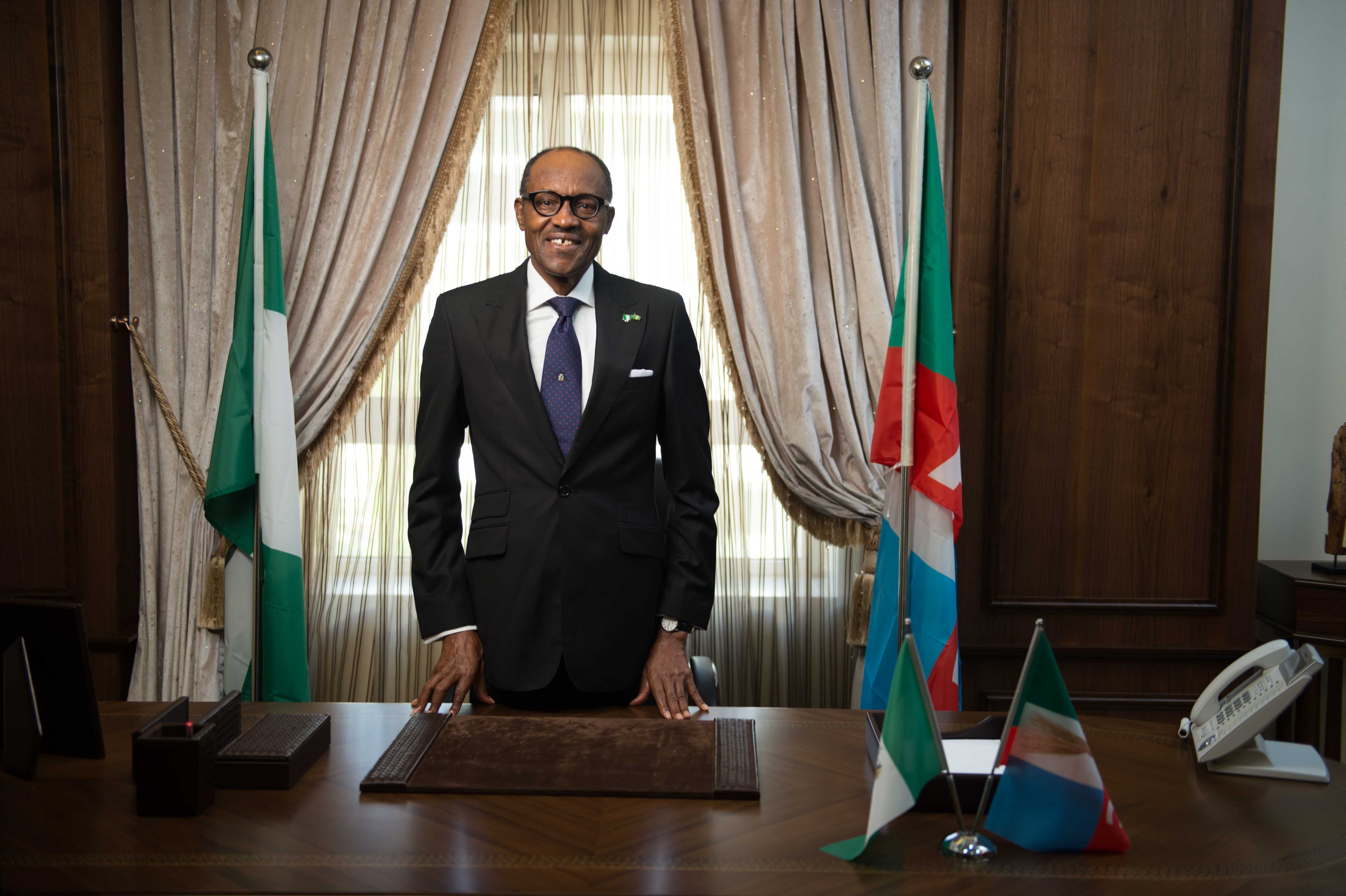
NIGERIA is a plural, ethnically and culturally divergent country, with over three hundred ethnic nationalities. The draftsmen of its Constitution, the Constitution of the Federal Republic of Nigeria 1999 (as amended), were conscious of this fact hence they enshrined in its section 14 (3) the federal character clause: “The composition of the Government of the Federation or any of its agencies and the conduct of its affairs shall be carried out in such a manner as to reflect the federal character of Nigeria and the need to promote national unity and also to command national loyalty, thereby ensuring that there shall be no predominance of persons from a few States or from a from ethnic or other sectional groups in that Government or any of its agencies.”Also under section 171 (1) (2) (a)-(c) of the same Constitution, the fundamental law of the land the provisions of which President Muhammadu Buhari promised in the Oaths of Office and of Allegiance thereof to respect and abide by, provides that the President shall have the power to appointthe “Secretary to the of the Government of the Federation, the Head of the Civil Service of the Federation, Ambassador, High Commissioner or other Principal Representative of Nigeria abroad, Permanent Secretary in any Ministry or Head of any Extra-Ministerial Department of the Government of the Federation howsoever designated and any office on the personal staff of the President”. The said section and its subsection (5) then warns that “In exercising his powers of appointment of under this section, the President shall have regard to the federal character of Nigeria and the need to promote national unity.”Additionally, the Constitution in section 217 (1) empowers the President to appoint senior members and other ranks of the Armed Forces (Army, Navy and Air Force). Subsection (3) thereof reminds the President that “The composition of the officer corps and other ranks of the Armed Forces of the Federation shall reflect the federal character of Nigeria.”
President Buhari’s new level of clannish sentiments is muzzling every expression of our hope and the trust in democratic governance. It must be said that part of the Nigeria’s long running social dilemma is tribalism and the damage it has done to merit, competence and national unity. The tribal matrix of our society is delicate, mutually suspicious, volatile and nasty. We understand that, as President, Muhammadu Buhari must listen, without prejudice, to every tribe in Nigeria and without allowing the grey and hazardous predisposition towards his own people influence his judgement.
National upheavals have shown that tribal solidarity is not a satisfactory basis for trust and that too much leaning towards one tribe or region perpetuates anger, animosity, distrust, disenchantment and could cause a breakdown of national cohesion and unity.
As a leader, President Muhammadu Buhari must work out a pleasing balance to suit the geo-political arrangement of our peculiar polity and the good of our democracy and unity. Tribalized democracy is ignoble in any form of its practice and its elimination in a nation like Nigeria is more than a timely solution to one of Nigeria’s political and social dilemmas. There has been so much fudging and baroque gesture on the subjects of tribalism and nepotism in Nigeria and until we confront them with all the zeal they require, our democracy will remain darkened by one tribe or region exerting far more influence over others than others.
ALSO SEE: Rebirth of northernisation policy
Growing public lamentations over President Muhammadu Buhari’s appointees cannot be ignored. There has been talk of tribal bias in his appointments. Although the Senior Special Assistant to the President on National Assembly Matters (Senate), Sen. Ita Enang has dismissed such criticisms and defended his boss over his choice of appointments, it remains a burning issue nevertheless. However, we have to say that this small but innocuous episode has proven that blanket loyalty to a leader without checking the facts is bad for our democracy. Our democracy should not return to an exercise in obfuscation which characterized our brand of politics and practices.
The list here boasts of a brazen return to wholesale tribalism by a leader who has come to represent probity, integrity and honesty. People from the North appointed by Buhari in recent memory include the Director-General of the Department of Sate Services, Lawal Daura; Acting Chairman of the Independent National Electoral Commission, Mrs. Amina Zakari, a northerner, who was replaced by another northerner, Prof. Mahmood Yakubu; Director of Dept. of Petroleum Resources, Mordecai Danteni Baba Ladan and the Accountant-General of the Federation, Ahmed Idris.
We have to mention also that the President’s Chief Security Officer, Abdulrahman Mani; State Chief of Protocol, Abdullahi Kazaure, his Aide-De-Camp, Lt Col. Muhammed Abubakar and Garba Shehu, the Special Assistant on Media and Publicity are all from the North. Our findings also revealed that 14 of this nation’s 17 security agencies are headed by northerners to the chagrin of millions of Nigerians. For instance, the Minister of Interior, Lt.-General Abdulrahman Dambazau is from Kaduna and oversees the Nigerian Prisons Service, the Nigerian Immigration Service, the Federal Fire Service and the Nigeria Security and Civil Defence Corps. The embattled Chief of Army Staff, Lt.-General Tukur Yusuf Buratai is from Borno State. The National Security Adviser, Maj-General Babagana Monguno (rtd.) is also from Borno State. Even the Chairman of the Economic and Financial Crimes Commission (EFCC), Mr. Ibrahim Magu, hails from Borno State. The Minister of Defence, Brig.-General Mansur Dan Ali (rtd) hails from Zamfara State and the Chief of Air Staff, Air Marshall Sadique Abubakar is from Bauchi State. The acting Inspector-General of Police, Ibrahim Idris is also a northerner from Niger State.
The Comptroller-Generals of Customs, Prisons and Immigration are all from the North.
Meanwhile, the Board of the NNPC has been reconstituted; Ibe Kachukwu, from the South-South, where the petroleum resources feeding this nation-space is located, was removed and a northerner put in his place; the six-man Board of the NNPC now has two Southerners and four northerners, an ugly situation that made the social media to rechristen the Board as the “Northern National Petroleum Corporation” (NNPC)!
There is no doubt that rewarding merit is not only central to our democratic conception of justice and fairness; it is also vital for national achievement and prosperity. The only chafing restriction to this democratic value is when such reward is lopsided and when Southern Nigerians are denied the same privilege, access to high offices and responsibility due to the overpowering sentiment of tribal solidarity. President Muhammadu Buhari must, in the spirit of change, change this limiting paradigm of tribal impunity that could combust in social disaster and lead to national disintegration.
You may like
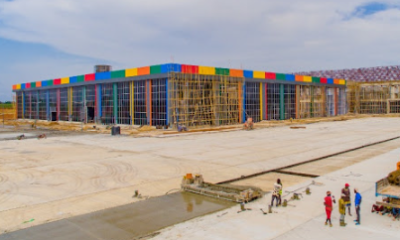

Flight operations at Ebonyi’s Chuba Okadigbo Airport set to begin in November
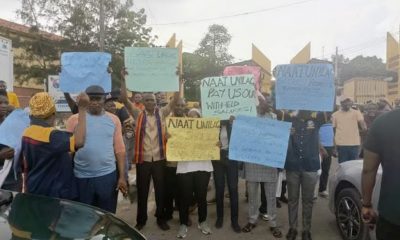

SSANU, NASU members block UNILAG gate over withheld salaries
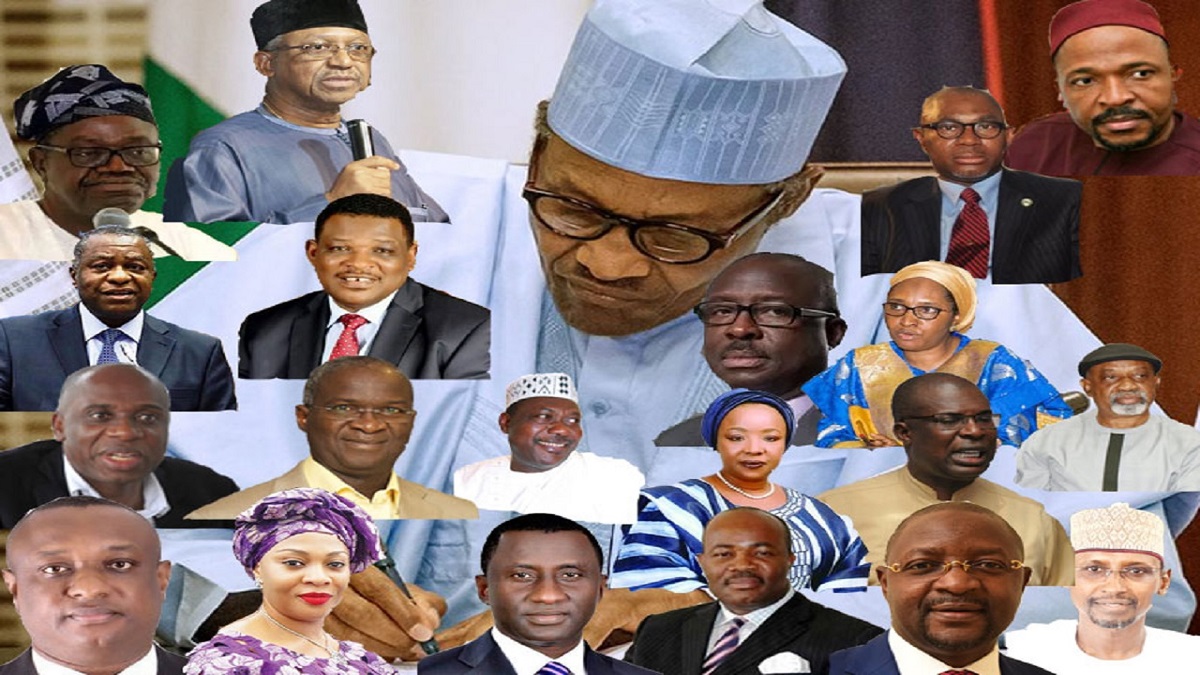

The costly impotence of Buhari’s presidency
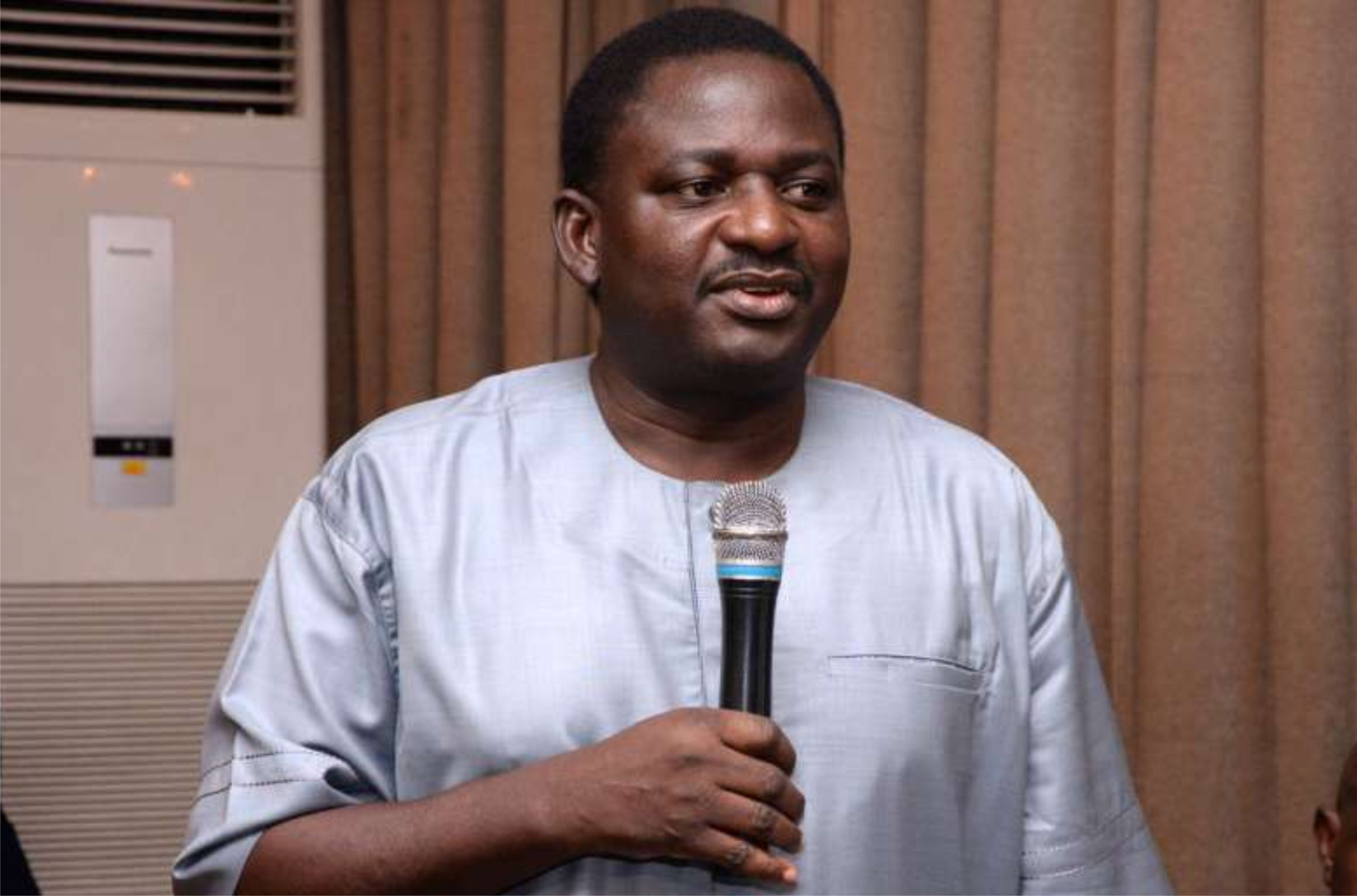

FG did not suspend removal of fuel subsidy because of 2023 elections – Femi Adesina


President Muhammadu Buhari on why he didn’t sign the electoral bill passed in NASS
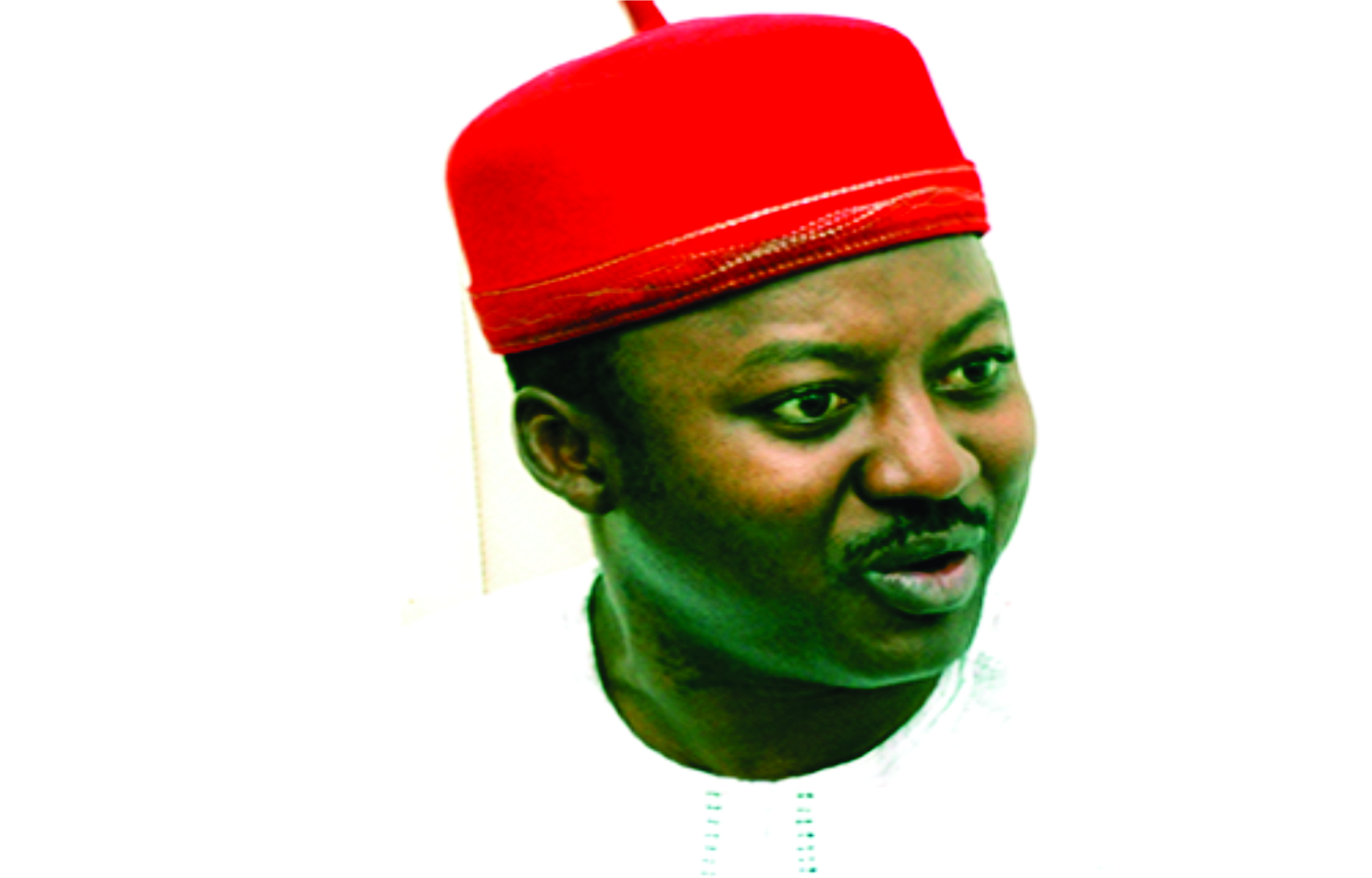

Buhari’s six years’ score card horrible, failed in all sectors – Onovo
Trending
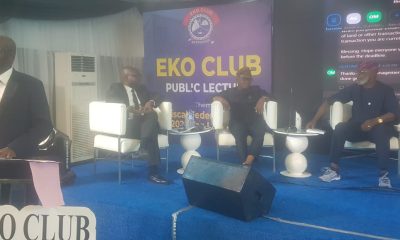
 News1 week ago
News1 week agoProfessor Sanni tasks local, state gov’t over replication of tax reform act at Eko Club Business Luncheon
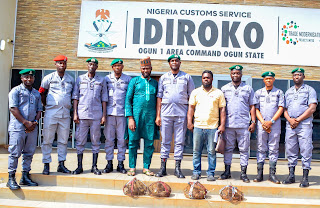
 Agribusiness1 week ago
Agribusiness1 week agoNigeria Customs Intercepts Four Live Pangolins in Ogun State Anti-Trafficking Operation
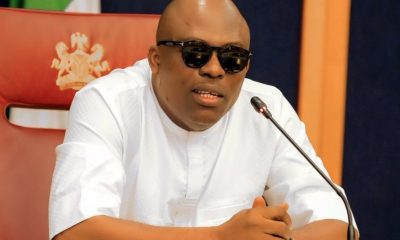
 News1 week ago
News1 week agoWithout Wike, I Would Not Have Been Governor…Fubara

 Football1 week ago
Football1 week agoKane Brace Helps Bayern Widen Bundesliga Lead to Six Points

 Football5 days ago
Football5 days agoNFF dismisses claims of DR Congo’s World Cup qualifying disqualification

 Football1 week ago
Football1 week agoGuehi Scores as Man City Advance, Burnley Stunned by Mansfield in FA Cup Fourth Round

 Entertainment3 days ago
Entertainment3 days agoSinger Simi sparks debate after calling for death penalty for rapists

 Football6 days ago
Football6 days agoCAF set for quarter-final draws in Cairo as road to continental finals takes shape

